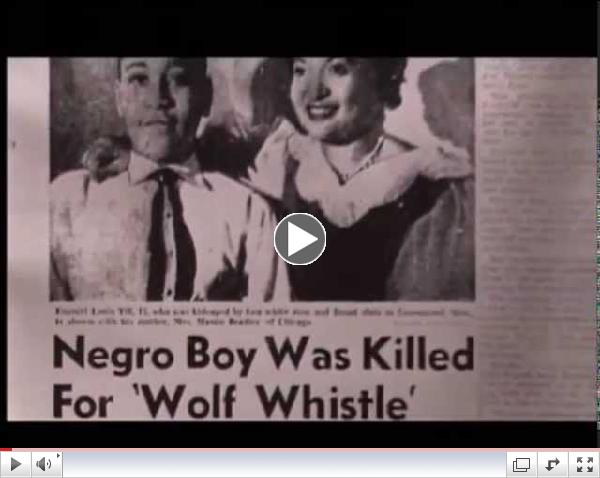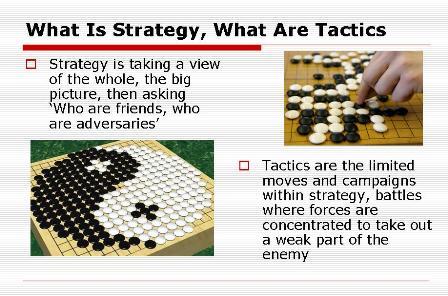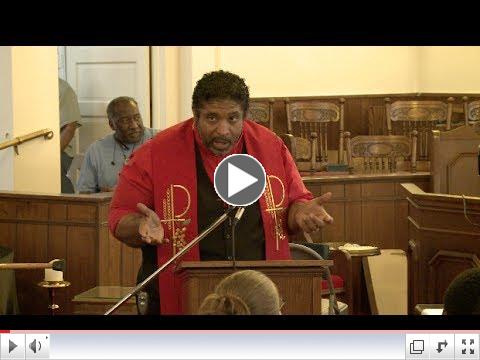 | |
Freedom Summer and Today's Issues:
Bob Moses interviewed by Melissa Harris-Perry
|
|
 | |
The Murder Of Emmett Till -
Full Documetary
|
|
Blog of the Week... 
|
 The new annual edition of our journal of discussion and analysis is now out. More than 170 pages, it includes 14 articles on strategy austerity, organizing, and the right. Cost is $10 plus shipping. Or get one by becoming a sustainer. Click the title to buy it directly. The new annual edition of our journal of discussion and analysis is now out. More than 170 pages, it includes 14 articles on strategy austerity, organizing, and the right. Cost is $10 plus shipping. Or get one by becoming a sustainer. Click the title to buy it directly.
|
 | |
Journal of the Black Left Unity Network
|
|

New CCDS Book Reporting on Vietnam
|
|
Radical Jesus:
A Graphic History of Faith  By Paul BuhleHerald Press By Paul BuhleHerald Press
|

Want to Know what CCDS has
been doing...Check it Out!
|
 Keep On Keepin' On Keep On Keepin' OnHating the 'Middle Class,' Why Socialists Run in Elections, Strategy and Tactics Slide Slow, Class and Privilege, the Green New Deal ...and other Short Posts on Tumblr by Carl Davidson
|

Edited by Carl Davidson Revolutionary Youth the the New Working Class: The Praxis Papers, the Port Authority Statement, the RYM Documents and other Lost Writings of SDS
Changemaker, 273pp, $22.50
For the full contents, click the link and view 'Preview' under the cover graphic.
|
|
By Randy Shannon, CCDS

"Everyone has the right to work, to free of employment, to just and favorable conditions of work and to protection against unemployment."
- United Nations Universal Declaration of Human Rights, December 10, 1948
I. Introduction
The "Great Recession" that began in 2007 has caused the greatest percent of job losses since the Great Depression of 1929. This crisis is the end of an era of unrestrained 'neo-liberal' capitalism that became public policy during the Reagan administration. The crisis marks a new level of instability with the growth of a global financial elite that targeted US workers and our trade unions after World War II.
|
|
Order Our
Full Employment Booklets
 |
...In a new and updated 2nd Edition
Capitalism may well collapse under its own excesses, but what would one propose to replace it? Margaret Thatcher's mantra was TINA...There Is No Alternative. David Schweickart's vision of "Economic Democracy" proposes a serious alternative. Even more fundamentally, it opens the door to thinking about alternatives. His may or may not turn out to be the definitive "successor system," but he is a leader in breaking out of the box. |
 by Paul KrehbielAutumn Leaf Press, $25.64
by Paul KrehbielAutumn Leaf Press, $25.64 | | Shades of Justice Video: Bringing Down a President, Ending a War |
|
 By Giuseppe Fiori
Verso, 30 pages
|

Essays on Mondragon, Marx, Gramsci
and the Green and Solidarity Economies |
Solidarity Economy:What It's All About

Edited by Jenna Allard, Carl Davidson and Julie Matthaei
Buy it here...
|

- Foreword by Susan Brownmiller
- Preface by Ken Wachsberger
$37.50 + $6 shipping
|
|
Discussion Documents for a Militant Movement

By Don Hamerquist
|
|
|
|
An Invitation to CCDSers and Friends...
 Emancipating Emancipating
the Thinking
of Today's Left
We're the Committees of Correspondence for Democracy and Socialism...Do you have friends who should see this? Pass it on...Do you have a blog of your own? Others you love to read every day? Well, this is a place where you can share access to them with the rest of your comrades. Just pick your greatest hits for the week and send them to us at carld717@gmail.com! Most of all, it's urgent that you oppose war on Iran, defend voter rights, plan for 2014 races now, oppose austerity, support the 'Moral Mondays' in North Carolina, the Congressional Progressive Caucus' 'Back to Work Budget'! We're doing more than ever, and have big plans. So pay your dues, make a donation and become a sustainer. Do it Now! Check the link at the bottom... |
Whither the Socialist Left? Round 2

By Mark Solomon Portside.org
June 25, 2014 - June 6, 2014 marked the first anniversary of the forum sponsored by the Left Labor Project and other groups to explore left unity -- especially among a sector of socialist organizations responding to a Portside article advocating such unity that appeared in March 2013. [Whither the Socialist Left? Thinking the "Unthinkable" [1].] An unexpectedly large audience (that required a change of venue) reflected a strong desire on the left for a convergence of generally like-minded organizations.
Unfortunately, panelists who represented their organizations did not forcefully express such interest. Except for opening remarks that attempted to frame the unity concept and a statement supporting unity by the publisher of Jacobin, the presentations by other panelists were marked by tepid and qualified responses to proposed cooperation. One panelist pleaded that her organization was making headway among students and was hesitant to be distracted by a unity project. Another speaker declared that unity first arises out of struggle. (One could respond that struggle arises out of unity.) Another speaker traced his organization's history of failed strategies and while his group was open to cooperation, it preferred for the moment to go its own way.
From those quarters, the fruit of such uninspired responses is a year of little or no movement to build a unified and cohesive socialist left.
But varied and at times unanticipated expressions of left and left-center unity did happen in the past year. There have been significant gains for collaboration and joint action. Those gains have been marked by degrees of convergence among movements fighting austerity and for economic survival, fighting environmental catastrophe, and movements opposing wars and militarization. The inseparable links between those pressing concerns, and alliances based upon them, is opening a path to broader, more effective movements and to a deeper understanding of the systemic nature of the interlocking crises facing the country.
Perhaps the most portentous development has been the African American-led Moral Monday movement that arose out of struggle against right wing North Carolina legislative attempts to suppress the right to vote, slash Medicaid, increase taxes on working people and strip away the rights of workers, women and the LGBT community.
Moral Monday has now spread through a rising South to Georgia, South Carolina, Florida, Alabama and Missouri - now moving north to Indiana. It has responded to those assaults with large-scale civil disobedience and massive marches -- building upon the intersecting interests of class, race and gender and centered upon defending the rights and interests of the multiracial working class and its allies. The movement is a prime example of coalition building described by past NAACP leader Benjamin Jealous "as the key to [achieving] transformative power."
New alliances are emerging in Mississippi, combining to fight back against voter suppression and attempts to undermine women's reproductive rights. The Freedom Summer 50th Anniversary observance has challenged the effectiveness of "isolated issues," opting instead for a broad coalition-centered emphasis on the intersecting issues of education, voting rights, women's rights and healthcare.
The projected People's Climate March in September at the United Nations aimed at mobilizing a mass demonstration commensurate with the depth of the environmental crisis has linked the battle for clean air, jobs and "an economy that works for all people" to fighting climate change. The Call to Action has stated emphatically: "this is the moment to bring our different movements together, articulate our common challenges and solutions - and go big."
Leading peace organizations such as United for Peace and Justice and Peace Action have consistently stressed the linkages between a stagnating economy and wasteful military spending - stressing the need for major stimulus spending to create jobs, dismantle a fossil fuel infrastructure and build a sustainable green economy instead of a regressive and provocative militarized economy.
An important current is the reemergence of class as fundamental - underpinning and intersecting a range of identity-based movements. Growing fight back against low wages in the fast food industry and giant big box retailers is stimulating, and in some cases, converging with the resistance of highly exploited part-time, contingency and adjunct workers in academia and other fields. ...(Click title for more)
|
|
Will German Workers Declare Independence?

IG Metall Workers in Germany
A Different Turnabout: Looking to the US Steelworkers for a New Model
By John Clay
Arbeitskammer via Truthout
June 26, 2014 - At a time when Americans are looking abroad for alternative economic strategies to rebalance our unequal economy, some worker advocates in Germany are asking if an American form of cooperative enterprise-the union cooperative-might be the way to economic independence. Ever since the United Steelworkers International Union, the Mondragon cooperatives of Spain, and the Ohio Employee Ownership Center launched the "union co-op initiative" in 2009, cities across the US have been exploring the model-cooperatives whose worker-owners choose to join a labor union-as a path to jobs, a stake in the economy, and hope for the future for local communities. Now worker advocates in Germany are taking notice.
US advocates might count the model a success if union cooperatives can help local economies here at home. But as shareholder corporations increase their global reach, the union cooperative ultimately may need to prove its benefits for local communities across the globe as well.
This summer I was invited to the Saarland Labor Chamber in Saarbrücken to talk about the role union cooperatives might play in Germany. In the days before the presentation, I engaged in discussions with Saarland's Left Party, nonprofits, unionized workers at Saarstahl and Halberg-Guss steel companies, and representatives of Germany's largest industrial union, IG Metall. [1]
Some questions asked were similar to questions here in the US: Why should labor unions and cooperatives partner together? Can the model work for large industrial firms? Are cooperatives as viable as conventional firms?
Other questions were more specific to historical successes and failures of social solidarity in Germany, but could apply to the US as well: Don't labor unions already provide enough job and wage security for working people? Isn't there a risk that the cooperative eventually would squeeze employees with more work and less pay like any conventional firm?
What follows is an early step toward answering these questions.
Union Cooperatives and Economic Democracy: An American Perspective
Thank you for inviting me to speak with you about union cooperatives and economic democracy. Democracy can be sustained only where there is a balance of power among all persons. And a balance of political power requires a balance of economic power. This spring, the US state of Minnesota, where I live, raised the state minimum wage above the national minimum. The original statewide campaign plan was geared toward the important work of door-knocking voters and lobbying legislators. After discussions, I was asked to write into the plan a new section on recruiting nonprofit institutions....(Click title for more)
|
Water Cut-Off in Detroit Violates Human Rights

Diane Henry, sells water after the city filed for bankruptcy, in Detroit, July 19, 2013. The Detroit Water and Sewerage Department announced plans to shut off water service for 1,500 to 3,000 customers every week if their water bills were not paid. (Photo: Stephen McGee / The New York Times)
Take It to the UN, Say Activists
By Thalif Deen
Inter Press Service
July 19, 2013. The Detroit Water and Sewerage Department announced plans to shut off water service for 1,500 to 3,000 customers every week if their water bills were not paid. (Photo: Stephen McGee / The New York Times)
June 26, 2014, United Nations - When the United Nations reaches out to resolve a water or sanitation crisis, it is largely across urban slums and remote villages in Asia, Africa or Latin America and the Caribbean.
But a severe water crisis in the financially bankrupt city of Detroit in the U.S. state of Michigan has prompted several non-governmental organisations and activists to appeal for U.N. intervention in one of the world's richest countries.
"This is unprecedented," said Maude Barlow, founder of the Blue Planet Project, a group that advocates water as a human right.
"I visited the city and worked with the Detroit People's Water Board several weeks ago and came away terribly upset," she told IPS.
She pointed out that hundreds of thousands of people, mostly African Americans, are having their water ruthlessly turned off.
Families with children, the elderly and the sick, cannot bathe, flush their toilets or cook in their own homes, she added.
"This is the worst violation of the human right to water I have ever seen outside of the worst slums in the poorest countries in failed states of the global South," said Barlow, a one-time senior advisor on water to a former President of the U.N. General Assembly.
Last March, the Detroit Water and Sewerage Department (DWSD) announced plans to shut off water service for 1,500 to 3,000 customers every week if their water bills were not paid. And on June 17, the City Council approved an 8.7-percent water rate increase.
According to a DWSD document, more than 80,000 residential households - in a city of 680,000 people - are in arrears, with thousands of families without water, and thousands more expected to lose access at any moment.
A group of NGOs has submitted a report to Catarina de Albuquerque, the U.N. Special Rapporteur on the Human Right to Safe Drinking Water and Sanitation, urging the United Nations to weigh in on the crisis and help restore water services and stop further cut-offs....(Click title for more)
|
|
There is no military solution in Iraq-so end the threats of U.S. airstrikes, bring home the Special Forces, and turn the aircraft carrier around. (Photo: Jayel Aheram / Flickr)
By Phyllis Bennis
Beaver County Peace Links via Common Dreams
This is how wars begin.
Barack Obama says we're not going back to Iraq. "American forces will not be returning to combat in Iraq," he said on June 19th, "but we will help Iraqis as they take the fight to terrorists who threaten the Iraqi people, the region, and American interests as well."
The White House says it's "only" sending 275 soldiers to protect the embassy, it's only sending 300 Special Forces, they're only "advisers." There's only one aircraft carrier in the region, they say, and a few other warships. They're considering missile strikes but they're not going to send ground troops.
Iraq isn't a start-up war for the United States-we've been there before. And these actions increase the danger we could be heading there again. We thought we had a president who learned the lesson, at least about Iraq-he even repeats it every chance he gets: "There is no military solution."
This is a very dangerous move. President Obama's words are right: there is no military solution.But his actions are wrong. When there is no military solution, airstrikes, Special Forces, arms deals, and aircraft carriers will only make it worse.
We need to stop it now. Before the first Special Forces guy gets captured and suddenly there are boots on the ground to find him. Before the first surveillance plane gets shot down and suddenly there are helicopter crews and more boots on the ground to rescue the pilot. Before the first missile hits a wedding party that some faulty intel guy thought looked like a truckload of terrorists-we seem to be good at that. And before we're fully back at war....(Click title for more)
|
Rev. Barber on How to Deepen Community
 | |
North Carolina's Rev. Dr. William J. Barber, II
|
|
Officer Friendly Is the Imaginary Policeman
of the Past -- Now They Look Like Navy Seals

By Jim Hightower
Alternet June 24, 2014 - Let's check our weaponry: 93,000 machine guns -- check! -- 533 planes and helicopters -- check! 180,000 magazine cartridges -- check! 44,000 night-vision goggles -- check! 432 mine-resistant ambush-protected vehicles -- check! OK, let's roll!
Only, this is not the U.S. military getting ready to head into battle in a foreign land. It's our local police departments patrolling our cities, towns and college campuses. Remember "Officer Friendly," the beat cops who were known as "peace officers" and were counted on to uphold our domestic laws, detect and investigate crimes, and be a helpful, non-threatening presence in our communities? The friendlies have largely been transformed into militarized forces, literally armed with and garbed in war gear and indoctrinated in military psychology, rather than the ethic of community policing.
From 1776 forward, Americans have wisely opposed having soldiers do police work on our soil, but in recent years, Pentagon chiefs have teamed up with police chiefs to circumvent that prohibition. How? Simply by militarizing police departments.
Twenty years ago, Congress created the military transfer program, providing federal grants so chiefs of police and sheriffs could buy surplus firepower from the Pentagon. Through those grants, in a stunningly short time, our local police forces have become high-octane, macho-military units, possessing a large armory of Pentagon freebies ranging from 30-ton tanks to rifle silencers. For ordinary police work, they've gone from peacekeeping beats to way over-the-top SWAT team aggression that's unleashed on the citizenry tens of thousands of times a year. For example, a gung-ho Florida SWAT team raided area barbershops in 2010 to stop the horror of "barbering without a license." And masked police in Louisiana launched a military raid on a nightclub in order to perform a liquor-law inspection. These were barbers and bartenders, not al-Qaeda or the Taliban.
Militarization is a dangerous and ultimately deadly perversion of the honorable purpose of policing -- and it is out of control. The New York Times notes that 38 states have received silencers to use in surreptitious raids. A sheriff in a North Dakota rural county with only 11,000 people told a Times reporter that he saw no need for silencers. When it was pointed out that his department had received 40 of them from the Pentagon, he was clearly baffled, saying: "I don't recall approving them."...(Click title for more)
|

Ohio Cooperative Solar workers installing panels
Author Gar Alperovitz proposes a solution: a cooperative economic model that puts workers first.
By Scott Gast
Orion Magazine via Alternet
June 26, 2014 - In the mid-1960s, when author, historian, and political economist Gar Alperovitz [6] was working as legislative director for Senator Gaylord Nelson, change was in the air. Ink had dried on an early version of the Clean Air Act, the civil rights movement had won major victories, and the first Earth Day was in the works. The U.S. still faced plenty of serious challenges, but many Americans felt their country was capable of dealing with them successfully.
Today, things feel very different. "From climate change to a medieval level of wealth disparity, what we face in this country is no longer a regulatory crisis," says Alperovitz. "We face a systemic crisis. And if you begin there, you begin to wonder: Is capitalism itself in profound trouble?"
Alperovitz believes it is. The author of several books on the subject, including America Beyond Capitalism, and a professor of political economy at the University of Maryland, he points to capitalism's increasing dysfunction as the impetus for the rise of another economy, one built from the ground up by democratically owned organizations like cooperatives, community land trusts, and municipal institutions.
Orion editor Scott Gast spoke with Alperovitz after the publication of his most recent book, What Then Must We Do?: Straight Talk About the Next American Revolution [7], which explores whether the cooperative economy can provide the seeds for a system that isn't capitalism and isn't socialism, but something entirely new.
* * *
SCOTT GAST: You've been thinking, writing, and speaking about alternatives to capitalism for a long time. Where did your interest in cooperatives begin?
GAR ALPEROVITZ: My interest began back in 1977, when a big steel company, Youngstown Sheet and Tube, went out of business. Five thousand people in Youngstown, Ohio lost their jobs in one day, which was disastrous. Layoffs of that size are common today-especially when multinational corporations shift capital around-but in 1977 that was front-page, national news. It was a big, big deal.
But the community leaders and steel workers in Youngstown decided that they didn't have to go down without a fight. They got together and built a coalition to buy the steel mill back and run it themselves, under worker-community ownership. They began organizing locally and statewide, and soon the Carter administration agreed to provide funds to hire experts who could help them with the mill's technical designs.
Things were looking up until the mid-term election of 1978, after which the Carter money disappeared and the project fell apart. It was a serious blow-but everybody involved in the coalition knew it might happen. They understood that part of their job was to educate people about this alternative form of ownership, because what happened in Youngstown was going to happen to other communities, and at some point, they might win the battle. So they launched an educational campaign throughout Ohio, and they began talking about worker and community ownership as a means of rescuing cities and towns from decay.
So even though the Youngstown experiment failed, it succeeded in a much larger sense: Some thirty-five years later, there are now a great many worker-owned businesses in the state of Ohio, and the support system for building them is one of the best in the nation. We don't know the exact number, but very large numbers, per capita, in Ohio, are traceable to this education effort. ...(Click title for more)
|
Rick Rosenthal's middling two-hander chronicles a fictive crisis for two Air Force personnel.
By Dennis Harvey
Variety
"Drones" is a middling real-time thriller that chronicles a fictive crisis for two Air Force personnel, who find themselves at loggerheads when they spot an apparent terrorist thousands of miles away on surveillance video.
Should they annihilate him with a button-push, no matter the cost in additional civilian lives? Originally conceived as a play by scenarist Matt Witten, the pic is efficiently helmed by veteran Rick Rosenthal (making his first bigscreen feature since 1988), but feels like an action movie struggling to escape being a single-interior two-hander. Limited theatrical launch June 27 will serve primarily to boost awareness of the pic's simultaneous VOD/iTunes release; cable sales are possible.
Lt. Sue Lawson (Eloise Mumford) aced flight school but has been temporarily grounded due to an eye injury. Ergo, it's her first day sweltering in a Nevada base trailer where she and more experienced subordinate Bowles (Matt O'Leary) share a shift monitoring the generally dull goings-on at a rural Middle Eastern location where the family of a highly sought-after terrorist lives. That actual target's whereabouts are unknown, but Lawson guesses, from a flurry of seemingly innocuous activity, that he might in fact be about to arrive for a rare clandestine visit.
Bowles is eager to nuke the mofo, as are their superiors; it would provide a triumph for the U.S. military at a moment when there's been much bad news amid our seemingly neverending post-9/11 military engagements abroad. Lawson, however, begins to question whether the visitor really is the man they're looking for - or, even if he is, whether that man is actually the Al Qaeda operative claimed by U.S. intel. Either way, a dozen civilians, including women and children, will die along with him if the drone strike goes ahead.
Lawson's crisis of conscience and rising tension with the gung-ho Bowles (not to mention their long-distance commanders) should be enough to sustain a drama that lasts just over 70 minutes, not including opening/closing credits. But the screenplay goes overboard piling on too many other late-breaking complications, including a contrived personal tie between Lawson and the target, a role reversal and then a physical fight between the leads. All this "Bourne"-level intrigue feels excessive in a story otherwise so tightly focused in temporal and spatial terms.
Also problematic is the central character dynamic, whether due to writing, thesping or both. (The only other notable speaking roles go to Whip Hubley and William Russ as high-ranking officials who communicate via monitor.) Lawson chafes at Bowles' jokey belittling of her gender and privilege (as a four-star general's daughter), yet too soon lives up to the proffered female stereotype of not being "equipped to make cold, strategic decisions." If she's been raised in a military family and gotten this far career-wise (with honors), why does she let a self-described "hotshot punk who barely graduated high school" rattle her so easily?
Both pic and performer oversell the queasy greenhorn thing early on, undercutting the punch of the character's later moral qualms. O'Leary, excellent in the recent indie sleepers "Fat Kid Rules the World" and "Natural Selection," is OK in a role that doesn't reveal or require much beyond its first impressions.
Brief breaks in the Nevada desert and frequent views of the unspecified (Afghanistan?) locale transmitted via satellite can only do so much to alleviate the claustrophobic concept. Nonetheless, Rosenthal, his d.p. son Noah, and editor Michelle M. Witten maintain a decent amount of tension, considerably boosted by Cody Westheimer's anxious score....(Click title for more)
|
|
 Seventeen Contradictions Seventeen Contradictions
and the End of Capitalism
By David Harvey
Oxford University Press
New York, 2014. 336pp., $24.95
Reviewed by Vishrut Arya
Marx & Philosophy Review of Books
David Harvey has three aims in Seventeen Contradictions and the End of Capitalism (SCEC). First and mainly he wants to schematically analyze the contradictions of capital, the 'economic engine' driving the particular social formation capitalism. Second, he seeks to draw-out that analysis's implications for anti-capitalist politics dedicated to creating a world substantially more democratic, egalitarian, and emancipatory than that which capital affords. Third, he aims to address what might cause the end of capitalism and, specifically, whether capital's internal contradictions progressively undermine its conditions of existence.
Although it doesn't break substantial new theoretical ground, and nor is it without a few weaknesses of its own, Harvey largely accomplishes his main goal: to contribute to the ongoing debate on the nature of capital, the direction in which it is taking us, and what should be done about it.
Harvey identifies seventeen contradictions internal to capital. He dedicates a chapter to each and groups them into three separate categories - foundational, moving, and dangerous. The first seven contradictions are considered foundational because they interlock with one another to produce a basic architectural foundation that serves as capital's set of necessary conditions. Importantly, and a point which other Marxian scholars may criticize, Harvey argues these contradictions are not organized hierarchically. The contradiction between use value and exchange value, for instance, is not subordinate to the contradiction between capital and labor, nor to any of the other foundational contradictions. The seven foundational contradictions are a constant underpinning of capital and exist wherever it does.
The only constant about the next seven contradictions, the moving contradictions, is the fact that they are constantly changing. The play of forces in these contradictions is perpetually shifting and, moreover, their general movement differs: some build over time, others move back-and-forth, and yet others move chaotically. Whereas the first seven contradictions produce capital's conditions for existence, the constantly shifting balance of forces in the moving contradictions produce much of its dynamism.
The final three contradictions, the dangerous contradictions, are distinguished by the danger they pose to capital. The first, endless compound growth, stems directly from capital's core operating objective: the endless accumulation of capital at a compound rate. The imperative for endless compound growth thus requires capital continually to find and realize sufficiently profitable reinvestment opportunities - and it must do so for a volume of capital that is itself accelerating in size. Harvey claims there are reasons to believe capital's observed tendency over the past few decades to increasingly pursue non-productive outlets for accumulation - e.g., in fictitious capital markets and monopoly rents - suggests profitable outlets in production may be increasingly scarce. Harvey doesn't elaborate this point, yet it is critical to the future of capital. In any case, the requirement for endless compound growth creates a dangerous 'expand or bust' contradiction at the core of capital's operating mission....(Click title for more)
|
Greet Freedom Summer's 50th With a Red Resolution...
Become a CCDS member today!
 The time is long past for 'Lone Rangers'. Being a socialist by your self is no fun and doesn't help much. Join CCDS today--$36 regular, $48 household and $18 youth. The time is long past for 'Lone Rangers'. Being a socialist by your self is no fun and doesn't help much. Join CCDS today--$36 regular, $48 household and $18 youth.
Better yet, beome a sustainer at $20 per month, and we'll send you a copy of Jack O'Dell's new book, 'Climbing Jacobs Ladder,' drawing on the lessons of the movement in the South in the 1950s and 1960s.
Solidarity, Carl Davidson, CCDS
|
|
|